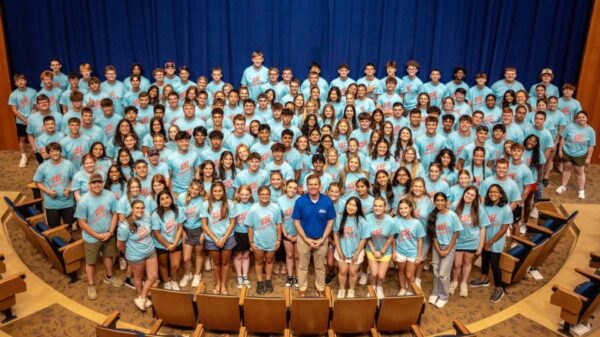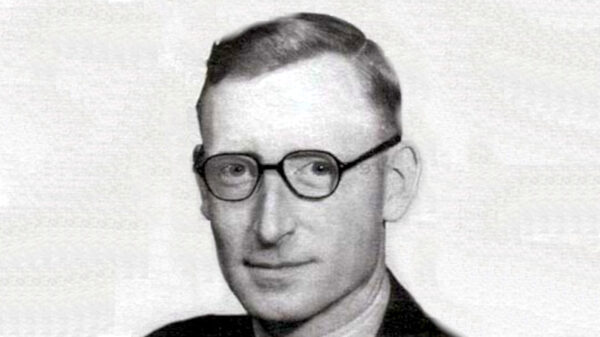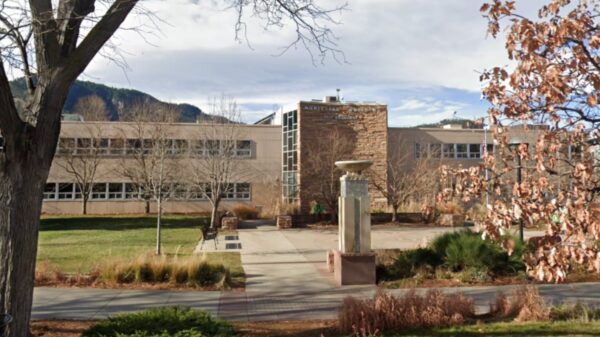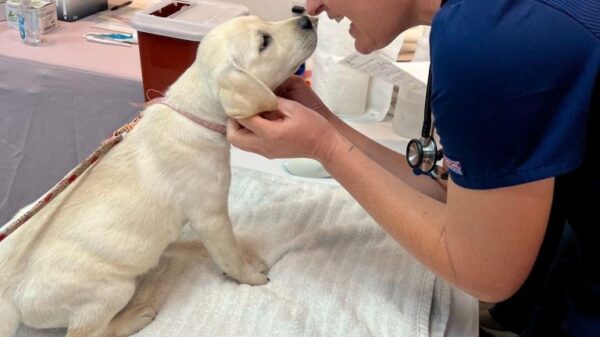Arizona State University (ASU) has made significant strides towards the establishment of its new medical school, now officially named the John Shufeldt School of Medicine and Medical Engineering. This development follows the school receiving preliminary accreditation from the Liaison Committee on Medical Education (LCME), allowing it to begin recruiting its inaugural class, set to start in August 2026. In addition, ASU announced a remarkable nine-figure donation, marking the second largest gift in the university’s history, aimed at supporting the school’s operations.
ASU President Michael Crow expressed gratitude for the accreditation, stating, “While it is something we expected, accreditation is not to be taken lightly. We are grateful to the LCME and to our team that has been working tirelessly to help make that happen.” The naming of the school honors John Shufeldt, a distinguished physician and entrepreneur, whose vision aligns with the university’s mission to produce innovative health care leaders.
Shufeldt, who holds an MD, JD, and MBA, founded several companies in the health sector, including NextCare and MeMD. His contribution will not only support the establishment of the school but also fund an endowed professorship focused on entrepreneurship in medicine. Additionally, a health-tech venture philanthropy fund will be created through the ASU Foundation for a New American University, aimed at fostering entrepreneurship in health care.
“I know what I want to do for the next 30 years,” Shufeldt remarked. “We don’t simply need more physicians. What we do need is more physicians who can innovate, who are leaders, and who can do it with a high degree of compassion.” His vision underscores the school’s goal to blend disciplines, preparing students to tackle health care challenges through innovative solutions.
Innovative Curriculum and Future Aspirations
The John Shufeldt School of Medicine and Medical Engineering, in partnership with its primary clinical affiliate HonorHealth, aims to cultivate a new generation of health care professionals. The curriculum will integrate medicine, engineering, technology, and humanities, resulting in graduates who will earn both an MD and a Master of Science in medical engineering within a four-year program.
Dr. Holly Lisanby, the founding dean of the school, described Shufeldt’s gift as “transformative.” She emphasized that the preliminary accreditation allows the school to recruit students who fit its unique interdisciplinary model. “Our students are going to be fully immersed in both cultures from the very beginning,” Lisanby stated. “They’ll be dually trained, learning from faculty across clinical, engineering, and entrepreneurship fields.”
Graduates will leverage emerging technologies, including artificial intelligence and data science, to enhance patient care and drive innovative practices within the healthcare system.
Building a Comprehensive Health Ecosystem
The John Shufeldt School of Medicine and Medical Engineering is part of ASU Health, a comprehensive interdisciplinary system designed to address the evolving health needs of Arizona and the nation. This initiative includes other institutions such as the new School of Technology for Public Health and the Edson College of Nursing and Health Innovation, all of which will be located in downtown Phoenix as part of the Phoenix Bioscience Core.
Dr. Sherine Gabriel, executive vice president of ASU Health, highlighted the importance of this development, stating, “Today’s news is another giant step forward in building the learning ecosystem that is ASU Health.” With the accreditation in place, ASU can now commence the recruitment process for its first cohort of medical and engineering students.
The new medical school will temporarily operate at the Mercado in downtown Phoenix until the ASU Health headquarters is finished. Groundbreaking for the headquarters is anticipated in spring 2026, with a projected completion date in 2028.
Preliminary accreditation from the LCME signifies that the school has completed the early stages of the rigorous accreditation process, allowing it to begin recruiting students. This step is crucial for students seeking eligibility for federal financial aid, residency programs, and licensure exams. Full accreditation will be granted once the first class graduates and the school continues to meet all established standards.
With these developments, ASU is poised to make a lasting impact on the future of health care education, fostering innovative leaders who are equipped to meet complex health challenges.





































































